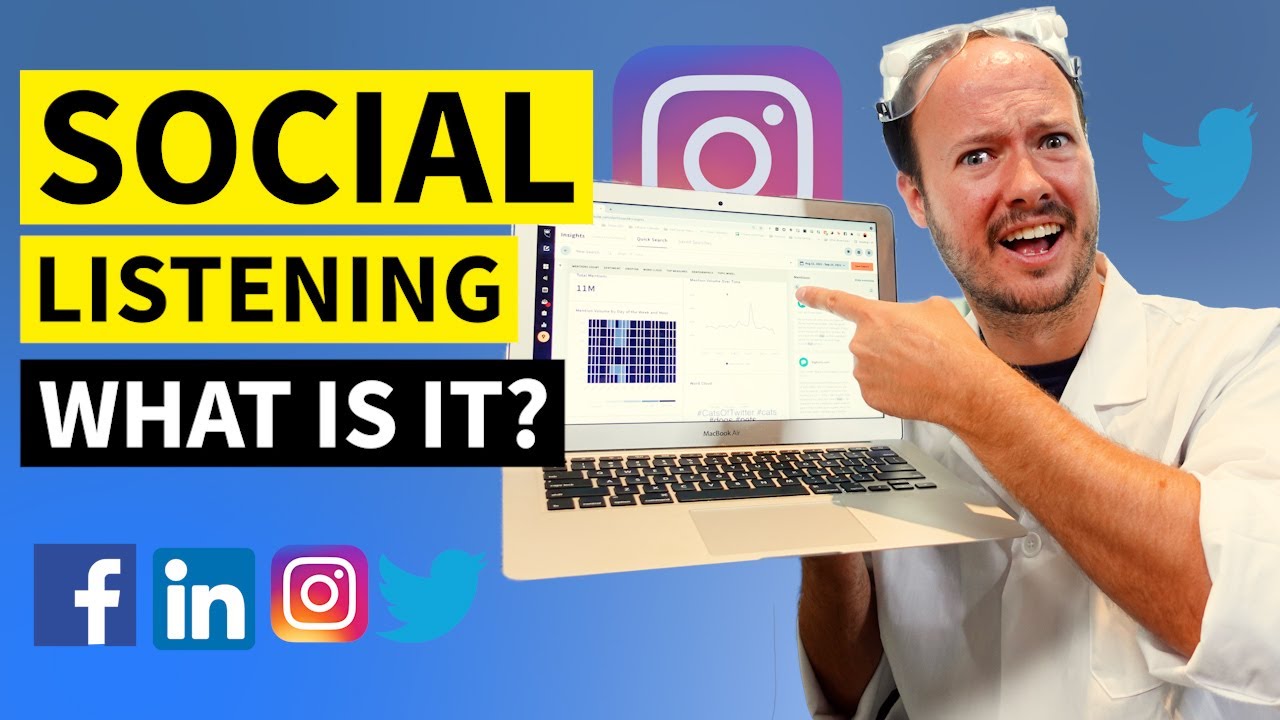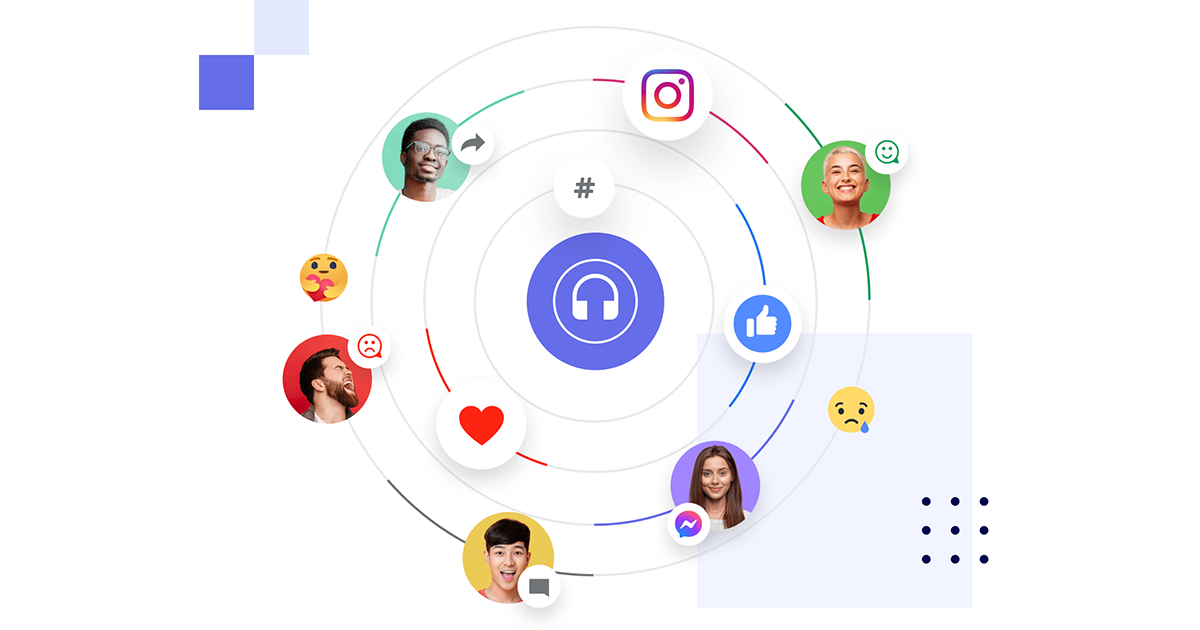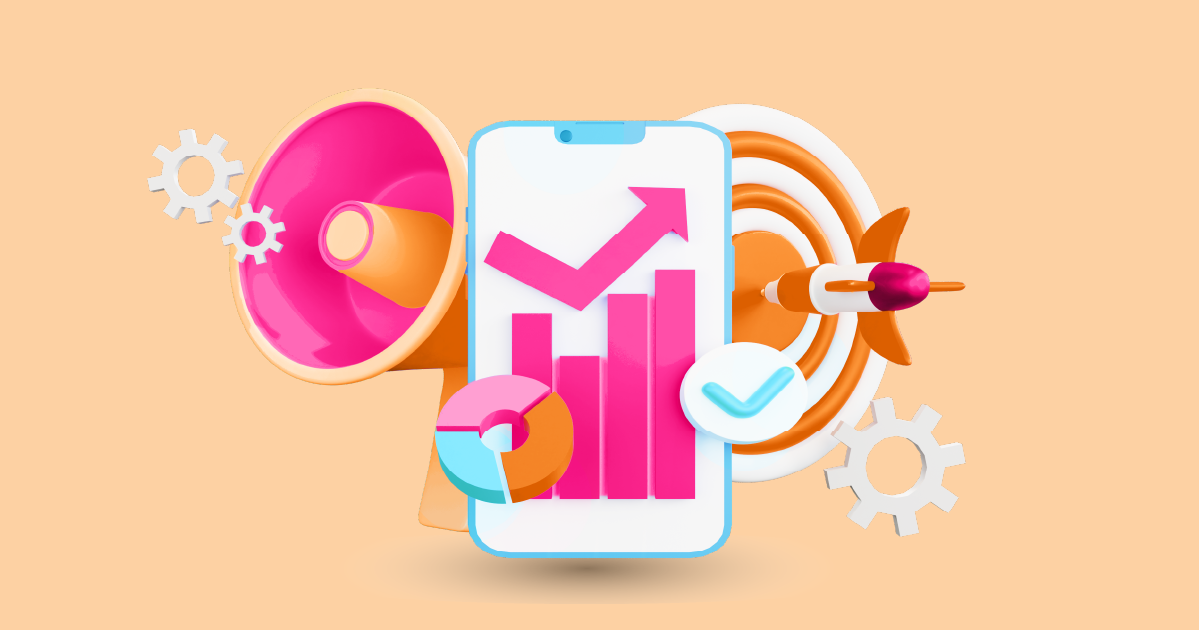In the digital age, social media has become an integral part of our daily lives. Platforms like Facebook, Twitter, Instagram, and LinkedIn have transformed the way we connect, share, and communicate. Along with personal interactions, social media has also given rise to a wealth of data that holds immense value for businesses. This is where the concept of “social listening” comes into play.
What is Social Listening?

Social listening, also known as social media monitoring, is the process of tracking and analyzing conversations, mentions, and discussions across various social media channels. It involves closely observing what users are saying about a particular brand, product, or industry and understanding the sentiments associated with those conversations.
The Importance of Social Listening
Social listening goes beyond simply counting likes and shares. It allows businesses to gain deep insights into customer preferences, pain points, and expectations. By actively listening to their audience, brands can tailor their strategies, products, and services accordingly. This proactive approach enables businesses to build meaningful relationships with their customers, fostering loyalty and advocacy.
How Social Listening Works
Social listening tools use advanced algorithms and natural language processing (NLP) to monitor and analyze vast amounts of data. These tools scan social media platforms, forums, blogs, and other online sources to identify keywords, mentions, and trends related to a specific topic or brand. The data collected is then organized and presented in a structured format, providing valuable insights to marketers and decision-makers.
Leveraging Social Media Listening for Brands
1. Identifying Customer Sentiments
Social listening helps businesses gauge customer sentiment towards their brand or products. By understanding what customers are saying, whether positive or negative, brands can respond promptly and address concerns, thereby enhancing their reputation.
2. Monitoring Brand Reputation
Maintaining a positive brand reputation is crucial in the digital landscape. Social listening allows brands to monitor mentions and reviews, respond to feedback, and address any potential crises before they escalate.
3. Tracking Competitor Insights
Social listening also provides valuable insights into competitors’ strategies and customer perception. By analyzing competitor conversations, businesses can identify areas of improvement and differentiation.
4. Improving Customer Service
Social media has become a primary platform for customer service. Social listening enables brands to identify service-related issues and respond to customer queries promptly, thus improving overall customer satisfaction.
5. Identifying Influencers and Advocates
Identifying influencers and brand advocates is essential for successful marketing campaigns. Social listening tools help pinpoint influential users who can amplify brand messages and reach a wider audience.
Best Practices for Effective Social Media Monitoring
1. Define Your Objectives
Clearly define your social monitoring goals and objectives to focus on the right metrics and data that align with your business needs.
2. Choose the Right Tools
Select social monitoring tools that suit your requirements and budget. There are various paid and free options available, each with different features and capabilities.
3. Monitor Multiple Platforms
Expand your social monitoring efforts to cover multiple platforms where your target audience is most active. Each platform provides unique insights.
4. Analyze and Interpret Data
Gathering data is only the first step. The real value lies in analyzing and interpreting the data to draw meaningful conclusions and actionable insights.
5. Take Actionable Steps
Utilize the insights gained from social listening to make data-driven decisions and take actionable steps to improve your brand’s social media presence.
Common Challenges
1. Dealing with Data Overload
The sheer volume of social media data can be overwhelming. Businesses need to filter out noise and focus on relevant information.
2. Language and Context Analysis
Sarcasm, humor, and context can be challenging for algorithms to understand accurately. Human intervention may be necessary to avoid misinterpretation.
3. Addressing Negative Feedback
Negative feedback is inevitable, but it presents an opportunity for improvement. Responding constructively to criticism is essential.
4. Privacy and Ethical Concerns
Social monitoring must be conducted ethically, respecting user privacy and data protection regulations.
Future Trends
As technology advances, social monitoring will become more sophisticated. Artificial intelligence and machine learning will play a pivotal role in better understanding user sentiments and behaviors.
Conclusion
Social monitoring has emerged as a powerful tool for businesses to understand their customers better and make data-driven decisions. By actively engaging with their audience and harnessing the insights gained through social listening, brands can create more meaningful and impactful experiences.
Experience the Power of Social Listening with AIM Technologies! Request a demo today to see how our advanced social listening tools can help your brand stay ahead of the competition and build lasting customer relationships.
FAQs
1. How often should I engage in social monitoring?
- The frequency of social monitoring depends on your brand’s size and online presence. At the very least, conduct it monthly, but for active brands, real-time monitoring is recommended.
2. Can social monitoring be automated entirely?
- While automation is useful for data collection, human analysis is still essential to understand context and sentiment accurately.
3. Is social monitoring limited to specific industries?
- No, social monitoring can benefit businesses across all industries by providing insights into their target audience’s preferences and behaviors.
4. What’s the difference between social listening and social monitoring?
- Social monitoring involves tracking metrics like follower count and engagement, while social listening delves deeper into understanding conversations and sentiments.
5. How can social monitoring help in crisis management?
- Social monitoring allows brands to identify potential crises early on and respond promptly, mitigating the impact and maintaining brand reputation.




